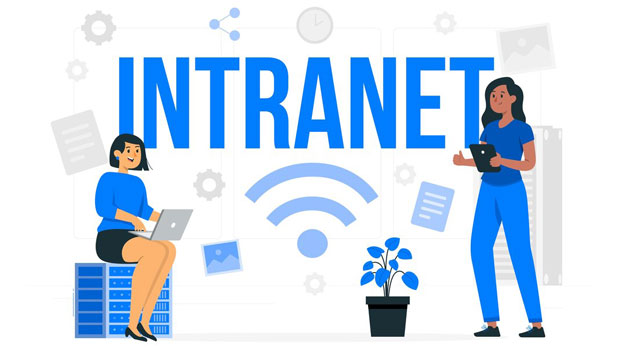When it comes to large-scale data crawling, choosing the right proxy server plays a critical role in ensuring efficiency, speed, and scalability. Among various options, PYPROXY and ASocks Proxy are two commonly used solutions. Both have their advantages and drawbacks, making the selection process a bit challenging for data crawlers who need high performance and reliability. This article will dive deep into the comparison between PyProxy and ASocks Proxy, helping you understand their key differences and determine which one is more suitable for your large-scale data crawling needs. Understanding PyProxyPyProxy is a Python-based proxy service that allows developers to route their requests through a proxy network, bypassing IP blocking and restriction mechanisms often put in place by websites. This proxy tool is lightweight and highly flexible, making it ideal for use cases requiring customization or integration with other Python libraries. It is commonly used for scraping, web testing, and maintaining anonymity while browsing.Features of PyProxy1. Python Integration: As the name suggests, PyProxy is built with Python, which makes it a great option for Python developers who need to incorporate proxy servers into their existing projects seamlessly. The ease of use with Python allows for better integration and control.2. High Customizability: PyProxy allows users to configure various aspects of their proxy system, such as selecting proxy rotation techniques, adjusting request headers, and controlling the frequency of requests. This makes it a highly flexible choice for complex scraping operations.3. Support for Various Proxy Types: PyProxy supports multiple types of proxy servers, including HTTP, HTTPS, and SOCKS5. This versatility allows users to choose the best option based on their specific requirements.4. Scalability: While PyProxy is flexible and efficient for small to medium-scale data crawling, its scalability for massive, enterprise-level projects can become a challenge. It requires significant resources for handling a very large number of simultaneous requests.Drawbacks of PyProxy1. Performance: For large-scale scraping projects, PyProxy may not provide the same level of speed and reliability as other specialized proxy solutions. Its performance may degrade as the number of requests increases.2. Complexity in Maintenance: While highly customizable, PyProxy may require manual configuration for advanced features. This can become time-consuming and cumbersome for large-scale data crawling operations, especially when dealing with thousands of proxies.Exploring ASocks ProxyASocks Proxy, on the other hand, is a more specialized solution designed specifically for handling large volumes of requests. It is known for its speed, efficiency, and ability to handle complex proxy routing tasks. ASocks Proxy works by creating a proxy server network that allows users to route traffic through multiple IP addresses, helping to bypass IP blocks and restrictions.Features of ASocks Proxy1. High-Speed Data Crawling: ASocks Proxy is optimized for performance, handling high-speed requests without compromising on stability. It is built to support large-scale data crawling tasks, ensuring that the crawler can make thousands of requests per minute.2. IP Rotation and Anonymity: ASocks Proxy offers robust IP rotation features, which prevent websites from identifying and blocking your IP address. This makes it ideal for large-scale scraping tasks where anonymity is critical.3. Efficient Resource Management: With ASocks Proxy, users can easily manage a pool of proxies, allowing them to rotate IPs without overloading servers. This resource-efficient proxy management ensures smoother crawling operations.4. Scalability: ASocks Proxy excels in scalability. It is designed for high-volume, long-duration data crawling, making it a better option for large enterprises or projects that require crawling large amounts of data over extended periods.Drawbacks of ASocks Proxy1. Complex Setup and Configuration: While ASocks Proxy is highly efficient, it may require a more involved setup process. Users need to have a deep understanding of proxy networks and may need to configure additional settings for maximum efficiency.2. Cost: The enhanced performance and scalability of ASocks Proxy may come at a higher cost compared to simpler proxy solutions like PyProxy. Depending on the scale of the project, this could be a limiting factor for some businesses.Comparing PyProxy and ASocks Proxy for Large-Scale Data Crawling1. Performance and SpeedIn large-scale data crawling, the speed of proxy requests is paramount. ASocks Proxy stands out with its superior speed, capable of handling high volumes of requests in real-time. PyProxy, while efficient for small to medium-scale tasks, struggles to maintain high performance as the scale of data crawling increases. Therefore, ASocks Proxy is the better option for projects requiring high-speed data extraction.2. ScalabilityScalability is crucial for long-term projects that involve crawling vast amounts of data. PyProxy, although customizable, may face limitations as the scale of the operation grows, requiring more resources and potentially causing performance bottlenecks. ASocks Proxy, with its robust architecture, is built to scale seamlessly, making it the preferred choice for handling large datasets and long-running tasks.3. Customization and ControlWhen it comes to flexibility, PyProxy offers superior customization, allowing developers to fine-tune proxy settings and configure different features based on the project's needs. ASocks Proxy, while highly efficient, offers fewer customization options out-of-the-box. However, it is designed to handle large-scale operations with less configuration effort, making it suitable for users who prioritize performance over flexibility.4. Cost-EffectivenessFor businesses with smaller budgets or those just starting with data scraping, PyProxy offers a more cost-effective solution. It is an open-source tool and does not require an upfront investment. ASocks Proxy, on the other hand, may incur higher operational costs due to its enhanced features and capabilities. However, for large-scale data crawlers that need superior performance and reliability, the investment in ASocks Proxy can be justified.ConclusionBoth PyProxy and ASocks Proxy offer distinct advantages depending on the scale and requirements of the data crawling project. For small to medium-scale projects, PyProxy is a viable and cost-effective solution, offering high customization for Python developers. However, for large-scale data crawling tasks that require speed, efficiency, and scalability, ASocks Proxy is the more suitable choice. Its performance, IP rotation capabilities, and resource management make it ideal for high-volume, long-duration scraping operations. Therefore, for large-scale data crawlers, ASocks Proxy is the recommended tool, ensuring smoother, more reliable operations.
Aug 14, 2025



































































